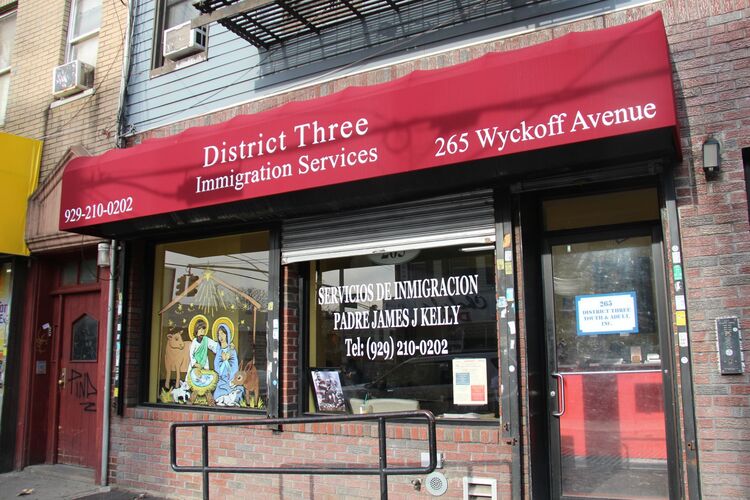Kelly Kerney, author of the novel "Hard Red Spring."
By Peter McDermott
pmcdermott@irishecho.com
Beginning back in the fall of 2006, many readers of fiction were won over by a smart and curious 14-year-old named Mel. The novel was “Born Again,” a funny, sophisticated story of a girl grappling with adolescence, Darwinism and fundamentalist faith.
It was the work of 26-year-old Bowdoin College and University of Notre Dame graduate Kelly Kerney, who in writing it had drawn upon her own upbringing in working-class Ashtabula, Ohio.
“Born Again” was named by the New York Public Library as one of the best books of 2006 and the newspaper reviews were terrific. Said the New York Times, “Kerney’s debut novel has guts and strength.”
The Richmond-based author’s resume of activities since that time includes a five-year stint as a book reviewer for the Irish Echo. Now, she’s back with a second novel, “Hard Red Spring.” Again the notices have been laudatory. This month, for example, the New Yorker magazine’s “Briefly Noted” column was very positive, saying “Kerney’s insights are rewarding.”
The Echo asked Kerney about the new novel, which is rather different in theme and scope than the first.
Why did President Clinton apologize to Guatemala in March 1999?
In February of 1999, the U.N. released its report on Guatemala’s 36-year civil war that followed the CIA-orchestrated coup there. Documenting mass human rights violations—including widespread torture, forced “disappearances,” psychological re-education operations, and the deaths of 200,000 people—the report concluded that the Guatemalan government’s conduct amounted to genocide. In fact, 93 percent of all human rights violations during the course of the war were attributed to U.S.-backed, armed, trained, and funded state forces.
From Eisenhower to Reagan, our government had provided consistent and, at times, covert support for the mass slaughter that was conducted in the name of the ironically named Cold War. It was for that sustained financial, political, and tactical support that Clinton apologized.
Your novel begins in that country at the beginning of the 20th century. Tell us a little about it and the main characters.
In 1902, Guatemala was suffering through the “coffee bust.” During the bust, coffee planters began moving to Brazil, for easier shipping and because Guatemala had gained a reputation for both geological and social instability. Panicked, the Guatemalan government redoubled efforts to finish a railroad line that would allow coffee planters to ship much more easily. But while the president was touring foreign investors around the country, the Santa Maria Volcano erupted. In a bizarre effort to keep the news a secret, the president decreed that the volcano was not erupting and even sent the military band to play over the sound of the disaster.
The first section of the novel follows an 8-year-old American girl named Evie who lives near the supposedly-not-erupting volcano on her family’s small farm. Suffering from floods, drought and the whims of corrupt officials, her family’s financial situation is already very precarious and becomes dire with the eruption and the series of sociopolitical events that follow it (and continue to unravel throughout the novel for the next 100 years).
Evie’s parents and indigenous workers react to the hardship and absurdity of the drama in different ways: her mother with increasing desperation and fear; her father with humor, denial and increasingly riskier plans; their servant, Ixna, with bored resignation; their overseer, Judas, with pragmatism. Unsure of whom to trust or even what to believe of their situation, Evie struggles to gain insight on the racial caste system, government corruption, foreign power, native myth and the terrifying stories—from ghosts to snakes to beheadings—she hears from all sides.
When did you first get interested in Latin American history?
I took a Modern Latin American History class during my undergraduate years and it, quite literally, changed my view of the world in so many ways. After I wrote my first novel, once I figured out how to write novels, I knew I had to write about this surreal and tragic history.
Shouldn’t people in the U.S. know more about this country’s involvement in the region?
Yes, indeed. The information is all there, well-documented and uncontested, although, sadly, so few Americans know about it. This is American History. How can we as a nation learn from our mistakes if we never learn what those mistakes even are? Neglecting these histories, as they say, dooms us repeat them. And we have.
You want to raise important issues, but is there a line that you think a work of art shouldn’t cross?
The only criteria that matter to me in that case are if a work is thoughtful, enlightening and good. It’s hard enough to do all that, so I’d never lay out more rules dictating how someone might get there. More importantly, however, American privilege allows many of us to mentally separate real life from "issues." Many, many people in the world are not so lucky. For the majority of Guatemalans, what we call issues have dictated the daily business of life for much of the past century. For them, there is no line.
Did “Born Again” provide a model for you?
No. That book is so far behind me. I honestly haven’t even looked at it since my last edits prior to publication.
Aside from evangelical Protestantism, are there other themes that are found in both books?
I’m sure there are. All writers have their obsessions, but I don’t consciously dwell on them.
How did someone from Ashtabula, Ohio, end up in Richmond, Va.? Tell us something about your life there.
Outside of literature, my main interest is the outdoors. Richmond is on the fall line of Virginia, making it a perfect home base for me. To the west, there are the Blue Ridge Mountains. To the east, there are countless rivers, marshlands and swamps. I spend nearly every moment of my free time exploring the diverse wilderness habitats in both directions—backpacking and canoeing in all seasons. I’ve clocked a few thousand miles on trails and waterways here.
What’s next? Any plans for a third novel?
Oh yes, but I’ll never tell!
“Hard Red Spring” is published in hardcover by Viking (448 pages; $28).








